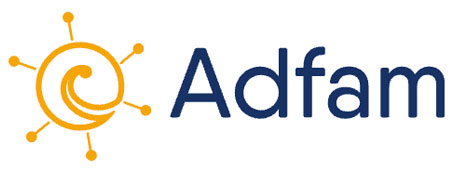What does ‘good’ look like in support for families affected by substance use?
In 2025, Adfam conducted a short survey to understand, from both those who use and deliver family support services, what, in their opinion, makes the best possible family support. We know that properly funded family support can improve outcomes for those affected by a loved one’s substance use, including . This includes by helping them to make better sense of their situation, enhancing their emotional wellbeing, giving them the skills to support their loved ones and find a positive way forward, and meeting others with similar experiences so they know that they are not alone.
While no two families are the same and no one approach suits everyone, there are key guiding principles that many families value, along with ways of working that great services share.
We are grateful to the many family members and carers with lived experience, volunteers, practitioners and frontline professionals, who took the time to share their experiences of what they see working best for families affected by substance use.
What ‘good’ family support entails
Among the aspects of current support identified and valued most by participants, peer support & lived experience groups were repeatedly highlighted as being a highly trusted and relatable form of help, by introducing family members to others with similar experiences, to share and validate their experiences, and helping them to know that they’re not alone.
Structured one-to-one (1:1) support and counselling programmes were also seen as essential in addressing people’s individual needs and issues such as trauma; while helping families to work towards changes they would like to make in their lives and find a way forward.
Telephone helplines were also frequently cited as being a valuable support option, especially for being accessible to family members in moments of difficulty and crisis.
Families also valued information and guidance through the availability of educational resources covering a range of issues such as addiction, recovery, relapse, and how best to support their loved one.
The informality & accessibility of family support, including casual, welcoming environments, such as coffee mornings or other fun activities, were preferable to some family members too, instead of more structured interventions.
Issues with current family support provision
A number of gaps and needs were identified by respondents as barriers to families getting the support they need. Most notably, the inconsistent or inadequate availability of services across regions, something of a postcode lottery. Also, the lack of support for family members in their own right, regardless of the person using substance’s engagement in treatment.
Many families often didn’t receive support until post-crisis or bereavement and spoke of how they wish they had found or recognised that they needed support for themselves sooner, suggesting a need for earlier intervention and greater accessibility, particularly through standalone services.
Lots of families spoke about challenges they faced in terms of the support available to their loved ones for their substance use, including the lack of continuity and depth of care, which often wasn’t successful in meeting their ongoing and complex needs. Many families faced barriers due to confidentiality, causing families to feel excluded from their loved one’s care, and unable to contribute positively and share vital information, thus having an impact impacting on their own wellbeing.
Improvements to family support
Among the recommendations made for improving family support, the availability of 24/7 support options was mentioned, including around holidays and weekends, so that families could access support at times of urgent need and crisis.
There were calls for integrated care and better collaboration and partnership working between addiction, mental health and family support services. With many families affected by substance use experiencing trauma in their lives, a need for enhanced trauma-informed practice with suitable training for staff was highlighted, along with clear service expectations including transparency about processes, limitations and expectations.
Finally, a clear need for national standards and guidance around family support emerged from this survey, to reduce the postcode lottery and ensure a consistency of family support across the board.
Conclusion
The results clearly show that there is no ‘one size fits all’, and that a menu of options is are required to ensure a range of support is available to families affected by substance use to meet their differing needs. However, of the responses we did receive, the following key themes emerged as the most important characteristics of effective family support services:
- Accessible (timely, local, and flexible)
- Empowering (educational, validating, and supportive)
- Connected (coordinated with other services, inclusive of families)
- Sustainable (ongoing, not limited to crisis or early stages)
- Holistic (addressing mental health, grief, relationships, and self-care)
Thank you to everyone who took part in the survey for giving up their the time to provide such a compelling and helpful understanding into what good looks like in support for families affected by substance use. These insights are valuable in helping efforts to campaign for better family support.
